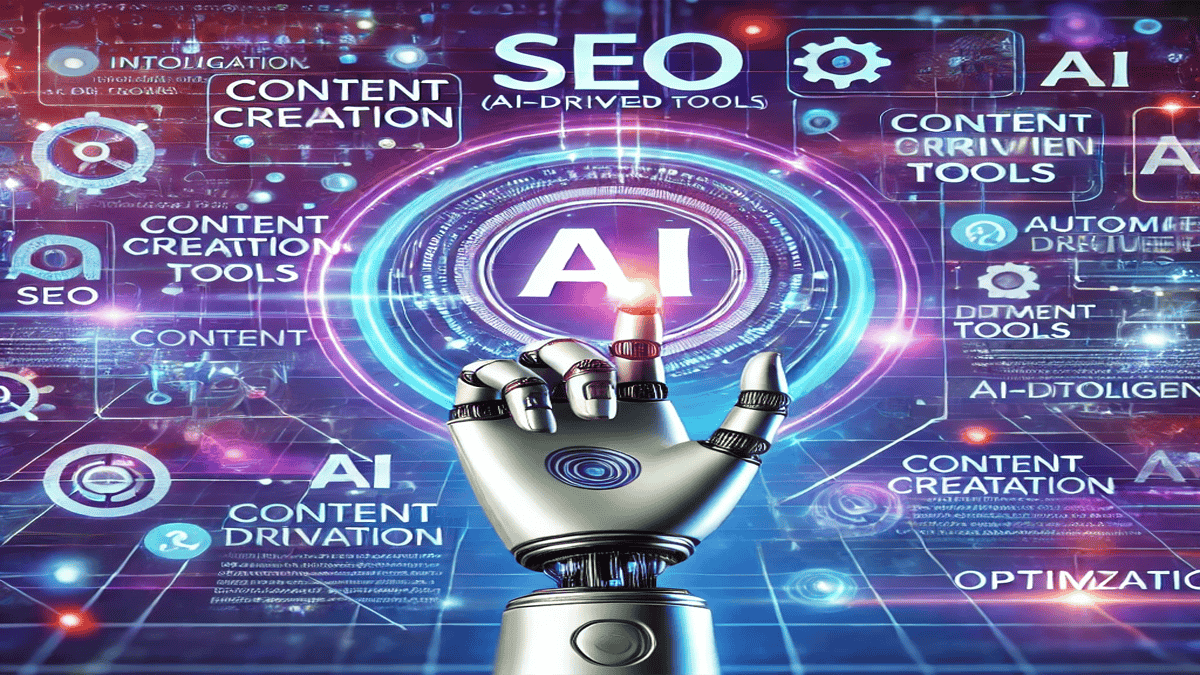Hey there! Hope you’re doing great today! So you see…The world of content creation and SEO is in a state of upheaval. If you think you’ve mastered the art of ranking high on Google, think again. According to a recent analysis of HubSpot’s organic traffic, even the “creme de la creme” of SEO content is experiencing a significant drop. This isn’t just a minor fluctuation; it’s a sign that the game has fundamentally changed.
- Google’s AI Overhaul: Google’s AI updates are a major culprit. The search engine now often aggregates top results into an AI summary, meaning people are clicking less on individual links. Instead of sifting through pages of search results, users are getting their answers upfront, leading to a decrease in traditional search patterns.
- The Rise of the Chatbots: People are increasingly turning to AI chat services like ChatGPT, Claude, and Gemini for answers. They’re asking specific questions and getting immediate responses, further reducing their need to click through search engine results.
- SEO Overload: The SEO landscape is becoming oversaturated. It’s like trying to jump on a train that’s already left the station. Big names have already claimed the high-volume keywords and built domain authority, making it difficult for newcomers to rank. We’re in an “SEO bubble” where ranking is becoming more challenging than ever.

The AI Content Flood: Is Your Content Drowning in a Sea of Sameness?
AI has democratized content creation, but it has also unleashed a torrent of “junk content.” Anyone can now ask an AI to generate an SEO-optimized article, leading to a devaluation of true expertise. This has resulted in a lot of surface-level content that lacks depth and originality. The ease with which AI can churn out content has led to a decline in the perceived value of that content. Google is now prioritizing original content.
- Surface-Level Content: AI-generated content often sounds generic and lacks the depth and nuance that comes from human experience and expertise. It’s become increasingly easy to spot AI-written content because it lacks the personal touch and insightful analysis that readers crave.
- The Death of “How-To”? The typical “how-to” article may be nearing its end. Audiences are becoming tired of generic, surface-level explanations. The focus is shifting toward content that demonstrates unique processes, business frameworks, and methodologies.
Optimizing for AI, Not Just Search: The New Rules of the Game
The way people search is changing and content creators need to adapt. Search queries are becoming more conversational and specific, so content must follow suit. Instead of aiming for generic topics, content should address specific questions that are being asked of AI. This means a shift from keywords and more to conversational writing that’s easily digestible for AI algorithms.
- Conversational Content: Search queries are becoming more conversational, reflecting the way people naturally speak. People are asking specific questions, not just typing in broad keywords.
- Skimmable and Digestible Content: Content should be structured in a way that’s easy to skim and digest. This allows AI to comb through it and extract key information for its summaries.
AI: Friend or Foe? The Content Creator’s Dilemma
AI is not going away. It’s becoming increasingly integrated into various tools, from project management to content creation. Refusing to adapt is not an option. It’s crucial to learn to work with AI, rather than against it. This means harnessing AI’s power to enhance your content, not replace it.
- Working with AI: By learning to craft precise prompts, you can get AI to generate outlines, perform research, and provide a base for your content.
- The Power of Human Discernment: AI-generated content is often basic and needs to be enhanced with a unique perspective, your own spin and examples. AI can help with the base level, but human discernment is needed to make the content truly valuable.
- AI as a Productivity Booster: AI can help make the job of content creation more productive and efficient, so it does not take away jobs if you use the tools effectively.

The Rise of the Niche Specialist: Why Generalists Will Get Left Behind
AI is pushing content creators to become niche specialists rather than generalists. This means focusing on specific areas of expertise and developing unique perspectives and insights. By focusing on areas where they excel, writers can differentiate their content from the sea of generic articles.
- Going Long-Form: Some content creators are finding success with long-form content, such as blog posts, newsletters, and case studies. These formats allow for deeper exploration and provide more value than surface-level articles.
- The Value of Originality: The future of content creation lies in originality and creativity. AI can handle basic content generation but it’s human insights and unique perspectives that will drive engagement.
AI Tools for Content Creation: Your Secret Weapon
Many AI tools are available to help content creators streamline their workflow. These tools can assist with brainstorming, outlining, research, repurposing, and even accessibility.
- AI Chatbots: ChatGPT, Claude, and other AI chatbots can be used for brainstorming, research, and generating outlines.
- Repurposing Tools: AI can help repurpose video content into short-form pieces, allowing creators to make the most of their content.
- Accessibility Tools: AI can generate auto-captions for videos, making content more accessible.
- Summarization Tools: AI can summarize videos and podcasts, which can be useful for proposal writing or creating email recaps.
The Shift from SEO-Centric to Community-Focused Content
The days of prioritizing SEO above all else may be numbered. It’s time to move towards a content strategy focused on building community and fostering genuine connections. This means creating content that resonates with your audience and establishes you as a leader in your space.
- Content Purpose: First define the purpose of your content. Is it to nurture relationships, gain customers, or build a brand world? Then, implement SEO where it is applicable but not as the main driving force behind your content.
- Long-Tail Keywords: Focus on long-term, low-traffic keywords. These keywords are easier to rank for than high-volume keywords and can attract a more targeted audience.
- Community Building: Use content to build a community around your brand. This can be more effective than solely focusing on SEO.
The End of “How-To” Content as We Know It: What Comes Next?
The days of basic, surface-level “how-to” articles are becoming obsolete. Consumers are looking for content that offers unique insights, personal stories, and real value. Content creators need to adapt to these changing preferences.
- Deeper, More Personal Content: The trend is shifting away from generic content towards deeper, more personal content. Consumers are tired of basic articles that are easily generated by AI.
- Journalistic Approach: Content is becoming more journalistic, requiring subject matter experts and personal experiences to create unique content. This approach requires community and relationship building.

Is SEO Dead? The “SEO-Light” Future
SEO isn’t dead, but it’s evolving. It’s moving toward what might be called “SEO-light,” where keywords are still important but not the sole focus. The emphasis is shifting to storytelling and the value of the content. The pendulum is swinging from boring and generic to authentic and valuable.
- Keywords Still Matter: Keywords are still important, especially in video and audio content, but the focus isn’t on stuffing content with them.
- Storytelling: Content is becoming more about storytelling, personal perspectives, and demonstrating a unique approach.
- Value-Driven Content: Consumers want content that offers real value and helps them make informed decisions.
The Future of Content is Here: Are You Ready?
The world of content is in flux. AI is changing the rules of the game, forcing creators to adapt and innovate. By understanding these changes, embracing AI as a tool, and focusing on authentic, valuable content, you can not only survive, but thrive. The focus should be on what consumers are actually consuming and what their profiles are. That will determine what content is produced.
Conclusion
The shift in content creation is not a temporary trend but a fundamental change that will continue to evolve. While SEO is still important, the focus is shifting toward creating original, high-value content that resonates with audiences. Content creators who embrace AI as a tool, focus on their niche, and prioritize authentic human connection, will be best positioned to succeed in this new era of content creation. It is a time of exciting new possibilities for those willing to think critically, adapt quickly, and provide real value to their audience.
FAQs
Is SEO dead? No, SEO is not dead, but it’s evolving. The focus is shifting from stuffing content with keywords to creating valuable and engaging content. Keywords are still important but should be a light emphasis not the primary goal. The focus should be on storytelling and offering a unique perspective.
How can I use AI to improve my content? AI can be a powerful tool for content creation. Use AI tools for brainstorming, research, outlining, and repurposing content. However, it’s important to add your unique perspective, examples, and stories to make the content truly original and engaging. Do not use AI to copy and paste generic content.
What should I focus on if I’m new to content creation? First, figure out the purpose of your content strategy. Is it to nurture relationships, get customers, or build a brand? Do not make SEO the end goal. Focus on long-tail, low-traffic keywords and niche down to become a specialist. Most importantly, look at your audience profile and focus on creating content that they want to consume.

